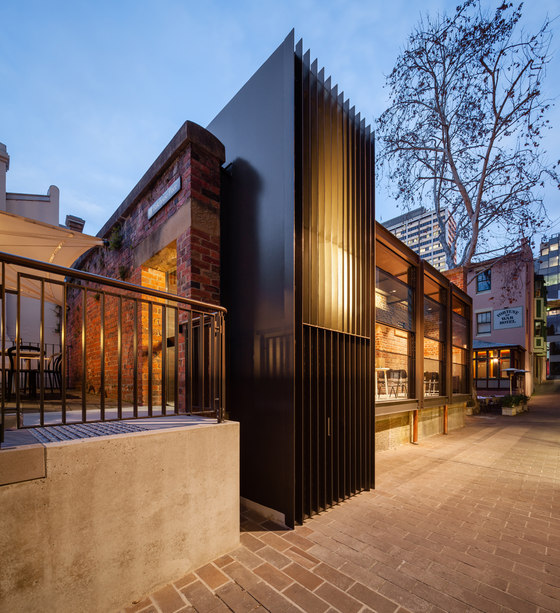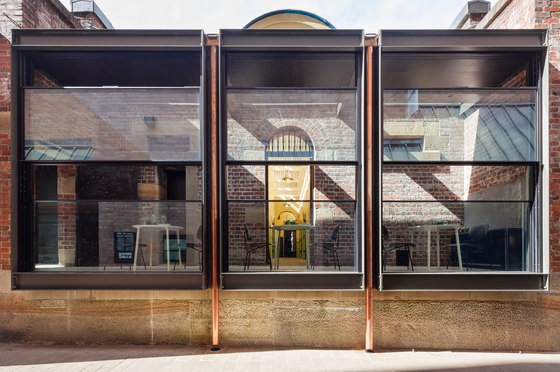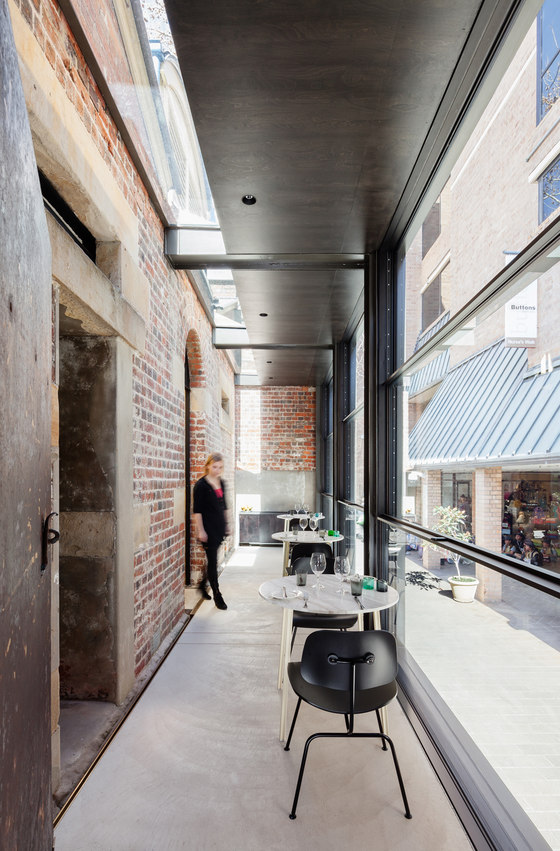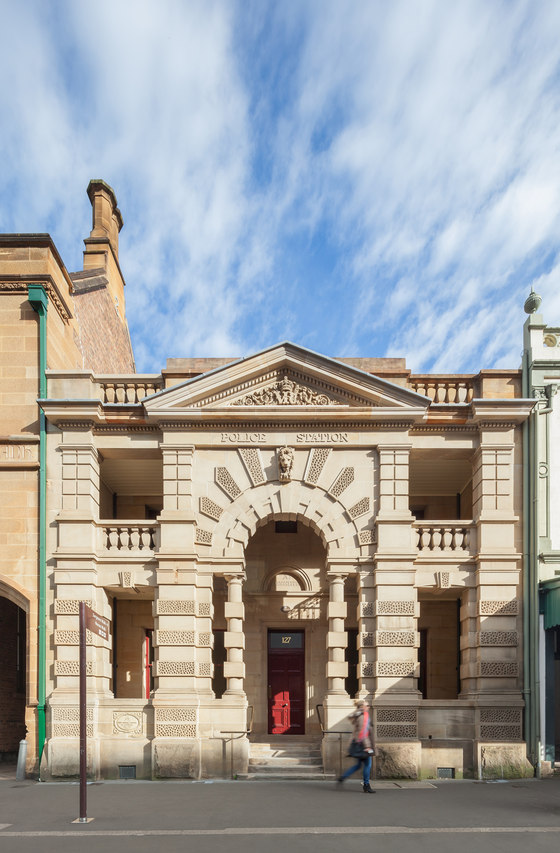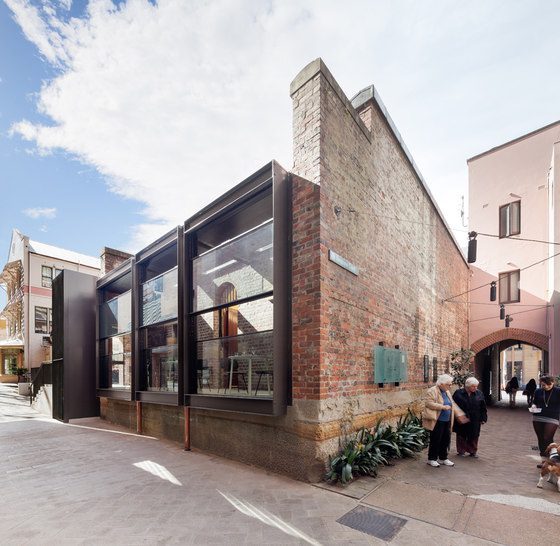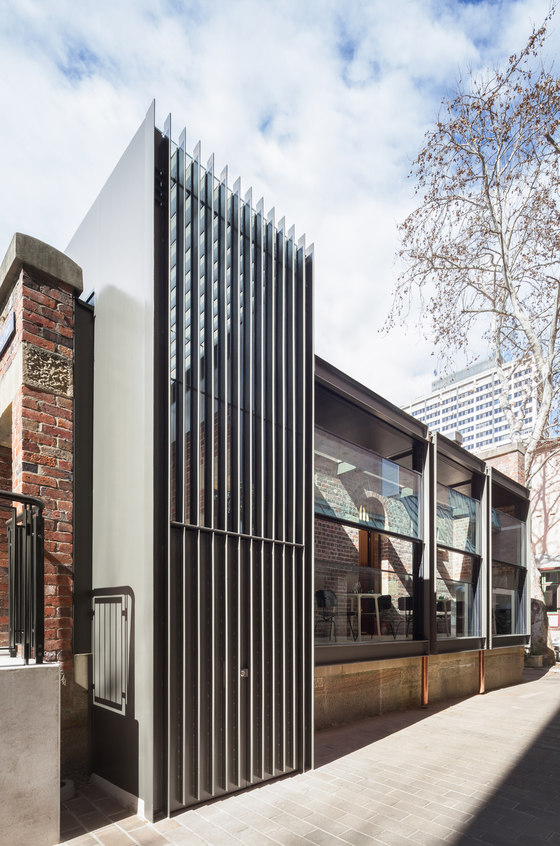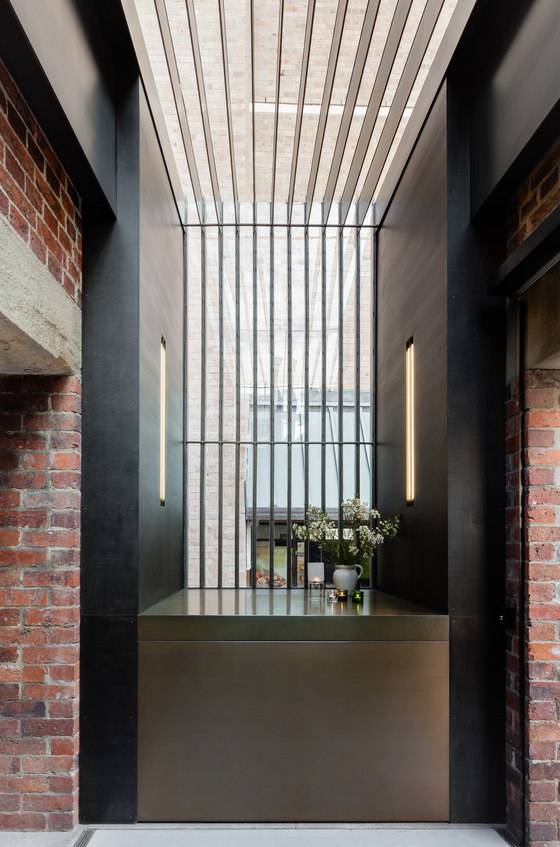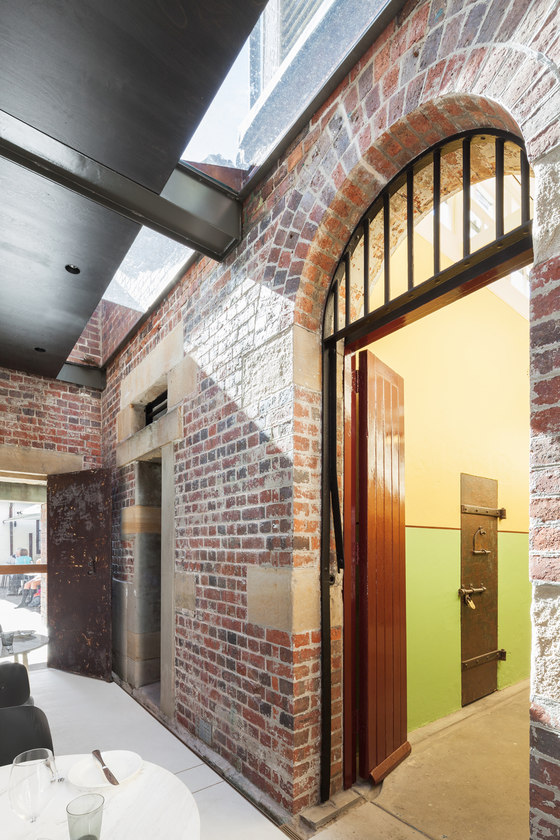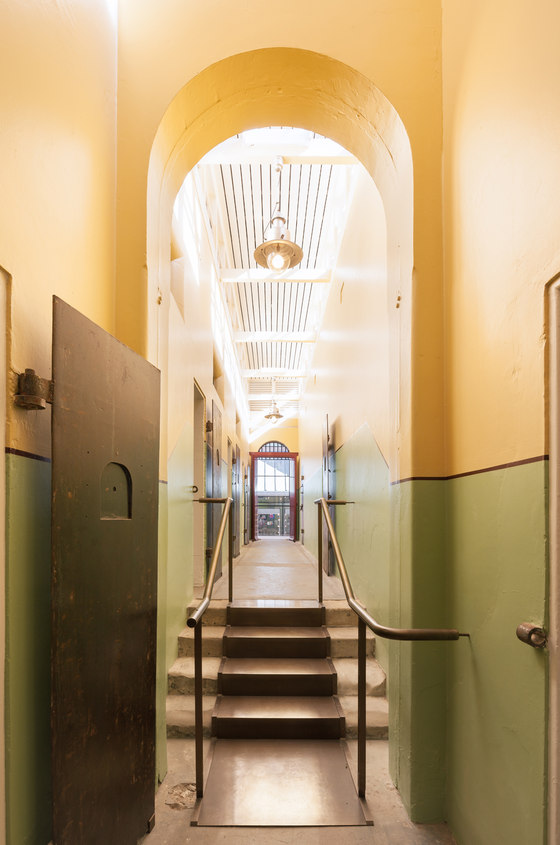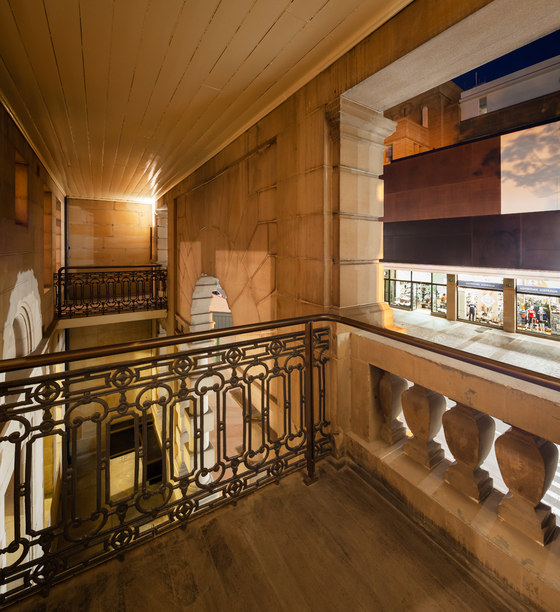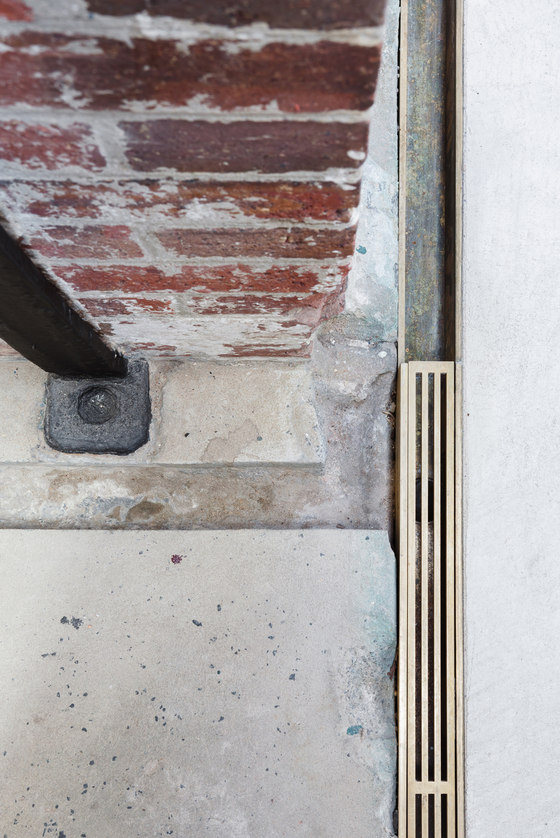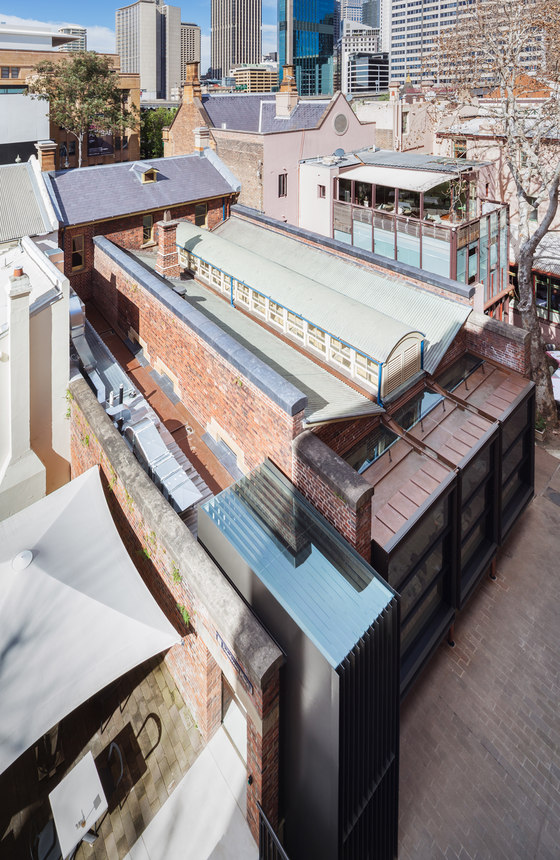Designed by Government Architect James Barnet in the early 1880's, this imposing building has served many purposes over its lifetime, including for a long time, a police station, complete with holding cells. The adaptation as an elegant new café/restaurant creates a new chapter in the rich history of this significant building. An exercise in restrained and respectful design, Welsh + Major’s design celebrates the qualities of the original building and breathes life into the adjacent public domain.
The adaptation is designed with a duality in mind - how to celebrate the imposing, austere qualities of the former Police Station building, whilst activating adjacent public space and providing internal opportunities for new tenants and users alike. Welsh + Major’s approach was to design contemporary interventions, carefully placing new within the old. These inserted elements are symbols of the building’s new use and openness, and enhance physical access to the building.
A finely detailed steel and glass structure inserted between existing brick and sandstone walls creates a convivial porch dining area, and transforms the adjacent laneway. The new entry on Nurses Walk formed from fine steel blades cleverly accommodates services and also provides an equitable access solution for the building. These contemporary elements have a quality of material and detailing to highlight and sit lightly against the existing building fabric. Steel, brass and glass are detailed to be both robust and refined, reflecting the qualities of the heritage building, whilst opening it up to new possibilities.
A full commercial kitchen box floats between the old courtyard walls – conceived and detailed as a removable element, it allows the original building fabric to breathe. Floating brass framed ceiling baffles within the former cells hide the services while creating a visually and acoustically convivial dining spaces. Toilet facilities are neatly accommodated within a single cell while retaining the spatial qualities of the original room.
Elsewhere we have designed many more subtle but meaningful insertions into the building. Brass elements throughout the building improve access, lighting and acoustics, and provide discrete junctions between old and new elements. On George Street, new brass handrails snake around the imposing portico steps and protrude slightly into the public domain to signify a new accessibility. Brass handrails to the portico verandas provide balustrade protection and incorporate an atmospheric up-light to the portico ceiling. Within the building new brass handrails and a floating overlay to the cell-block steps protect the building, improve accessibility and highlight the original fabric.
The adaptation of the former Police Station is an exercise in restrained and respectful design to allow the revitalisation of the building in a way that enhances the qualities of the original building and breathes life into the adjacent public domain.
Welsh + Major worked with Sydney Harbour Foreshore Authority as client and heritage architect to revitalize the building and its surrounds.
Awards
2014 Australian Institute of Architects NSW
Architecture Award for Heritage –Conservation
2014 Australian Institute of Architects
National Commendation for Heritage
Client + Project Manager
Sydney Harbour Foreshore Authority
Project Team
Chris Major
David Welsh
Gabrielle Pelletier
Andrew Short
Builder: A.J. Bristow & Sons
Consultants:
Heritage Consultant: Sydney Harbour Foreshore Authority
Structural Engineer: Shreeji Consultant
Services Consultant: Wood & Grieve
BCA Consultant: Environet Consultancy
Access Consultant: Accessibility Solutions
Acoustic Consultant: PKA Consultants
